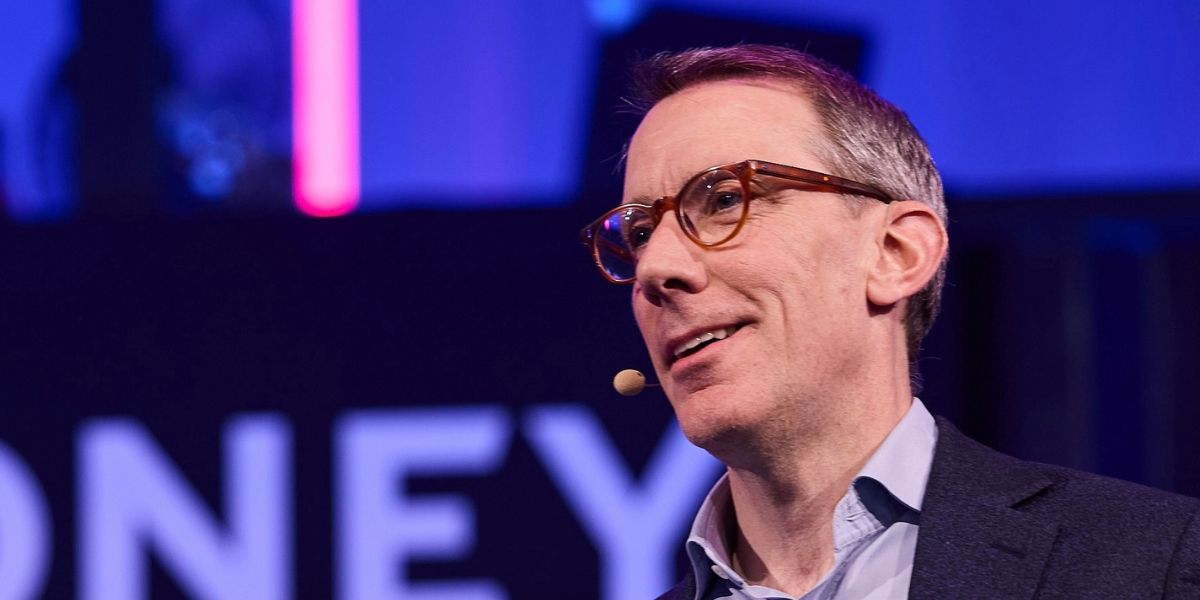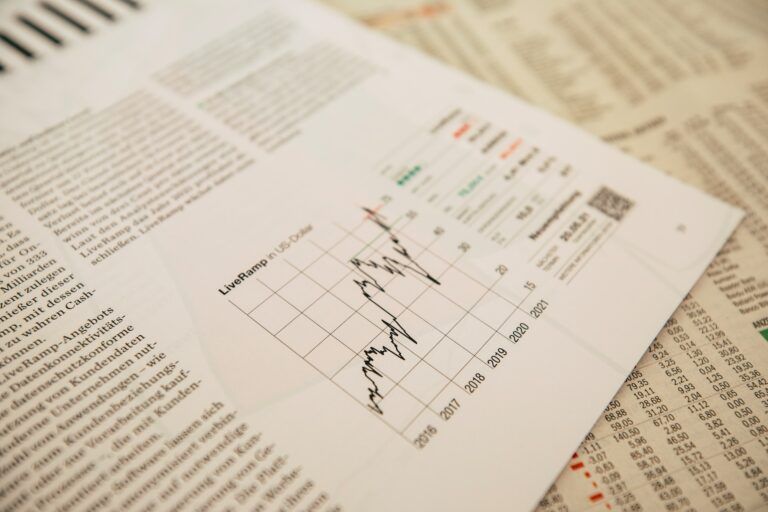Tech
Geoff White Talks Casino Crime, Tech & Cyber Threats

In a career spanning 20 years, Geoff White has covered financial crime, money laundering, cryptocurrency, and the emergence of cybercrime as one of the primary threats to modern society.
In his book ‘The Lazarus Heist’, Geoff describes the link between cybercrime and casinos, both casino sites and land-based establishments. Now, his latest book, Rinsed, reveals how technology has changed the money laundering industry. It explores how technology is revolutionizing money laundering, from drug cartels washing their cash in Bitcoin to organized fraud gangs recruiting money mules on social media.
Casinos.com sat down with White for a wide-ranging interview on cybercrime, how it relates to the casino industry, new technologies in the space and much more.
Shedding a Spotlight on Unwanted Elements in the Industry
Here at Casinos.com we have reported on several major busts for the National Crime Agency (NCA), Interpol, and other international agencies in Europe and the USA, but there are other areas of the world—Russia, for instance—where cybercrime is rampant. White highlighted Russia as a particular area of interest, particularly in the aftermath of their invasion of Ukraine.
“It certainly is, particularly at the moment in the wake of the Russian invasion of Ukraine in 2022,” White said.
“What we’ve seen is an increase in cyber activity from both the Russian government and from Russian cybercrime groups. I think it’s fair to say the attitude in the Russian Federation is that the gloves are off for attacking Western targets.
Cybercrime as a Patriotic Endeavour
White had no doubts that cybercrime in some countries would be spreading into businesses everywhere. He continued: “The work of cybercrime groups can be seen as a sort of patriotic endeavour, part of the war effort. We’ve seen Telegram groups in which Western targets—big Western companies—are listed as legitimate targets for these groups to attack. There’s also the role of the Russian cybercrime economy in laundering money from cyberattacks and other types of crime. So, on both those levels, yeah, Russia is definitely a country that’s of great interest at the moment.”
Related Reads:
Big business is one thing, but should the ordinary man and woman in the street be concerned about the growth in cybercrime?
Unfortunately, the answer is yes, according to Geoff White, who was adamant that ordinary people were not exempt from being attacked. He said, “People should be concerned. Unfortunately, it’s affecting people at all levels of society. Obviously, big companies get targeted because they’ve got big money but organised crime groups are perfectly able to make substantial amounts of money from individuals.
Fraud Epidemic During Covid
White asserts that the Covid pandemic provided a great opportunity for cybercriminals as more people went online for business.
“We’ve seen, I think it’s fair to say, a fraud epidemic. A scam epidemic started really during the COVID era but is continuing now of people being ripped off for, in some cases, their life savings as part of romance scams in which people trick someone into thinking they’ve got a romantic interest but wanting to steal the money instead.
“Scams where people get tricked into investing in crypto and other types of financial schemes and, again, lose their life savings. It happens both on an enterprise level and a personal level.”
Geoff White highlights the aftermath of the COVID-19 pandemic, revealing a surge in online scams as people increasingly turned to digital platforms for business and connection.
‘Vipers Nest’ of Money Laundering and Cybercrime
The man in charge of regulating casino gaming in the Philippines, Alejandro Tengco, has asserted his country could soon overtake the city-state of Singapore to become the second-largest gambling market in Asia.
White has written extensively about the Philippines, where one of the biggest heists in history was attempted. In the aftermath, the criminals used casinos, amongst other means, to launder the stolen cash.
“It is interesting you mention the Philippines; obviously, this was one of the largest attempted heists in history—the attempted theft of a billion dollars from the National Bank of Bangladesh,” White said.
“Now that money or at least a chunk of it, 80 million of it was washed through casinos in the Philippines back in 2016. The casinos were largely unregulated then, but that has changed.
“What we’ve now seen is this interesting thing, which again goes back to the COVID-19 influence, where casinos were set up in the Philippines and in other countries in Southeast Asia by often Chinese conglomerates. COVID kicked in so there were no land-based casino customers, no visitors to the casinos, and no workers to work in the casinos.
“These casinos started turning into what you might call dark sites, where they shifted operations online. That became effectively a money-laundering vehicle for theft from scams I’ve talked about and also from crypto scams.
“You have this kind of Vipers nest really of illegal online casinos operating illegal online gambling exercises, but also being used for money laundering for various other types of crimes as well. The Philippines had its share of those.”
‘Rinsed’ Focuses on Use of Technology in Money Laundering
Regulators have been slow to act on new technologies, such as blockchain and cryptocurrency, which White chalks up to a lack of understanding. With regulations slow to commence, combined with becoming instantly ‘global’, new technologies become a playground for criminals to frequent.
“What I’ve talked about in my new book ‘Rinsed’, which you mentioned, is about how technology ends up assisting money launderers. One of the things about that is that technology, by its very nature, is international and often poorly regulated.
“You invent a new type of technology, whether it’s Bitcoin or NFT and regulators struggle to understand this stuff, let alone keep up with it and regulate it and what you end up with is this sort of Wild West-type zone.
“Obviously, criminals like playing in that particular space. But more importantly than that, as these technologies get set up, they become almost instantly global.
“You know, an NFT is transactional and tradeable everywhere. It’s attractive to criminals because if you make your criminal money in Los Angeles but you want to move it to London to evade detection or just to have it somewhere local, you can use the technology to move those funds across.

Geoff explains how emerging technologies like NFTs facilitate global money laundering. (Image: Dzmitry Kliapitski / Alamy)
“So inevitably, you get this sort of globalisation and technology and as criminals hop on the technology, so does the globalisation of crime as well.”
The Problem of North Korea
We asked Geoff about the potential problems in dealing with countries like South and North Korea and the rise of cybercrime there. Should we be concerned in the gambling casino industry over the growing tech crime in these areas?
“Yes, I think so. I find it interesting that, moving on from that 2016 case I talked about, the National Bank of Bangladesh obviously was very physical. There were literally truckloads of cash being moved out of banks in the Philippines and into the casinos. That activity has shifted largely online.
“So, it’s about online casinos and online gambling operations. Now, even if you know your readers aren’t involved in that online stuff, it’s likely they’ll be interacting with other entities in the industry who are or taking orders from people who are doing online gambling. It’s increasingly difficult, I think, to police that kind of activity around the world.
There will be criminals, criminal groups, organised crime, and gangs pushing their ill-gotten gains into online gambling; that is an absolute given.
Don’t Tar All the Casino Industry With the Same Brush
Many in the casino industry will be alert and obviously follow the laws and regulations. The net is closing in on the illegal side of gambling in different areas around the globe.
Is it fair to paint the whole casino industry with the same brush when there is a strongly regulated casino and gambling industry?
Geoff agreed that the toughening of regulations pushed people toward the black market, where the criminals often reside.
“Law enforcement does continue to do excellent work, and you know the legitimate, above-the-board respectable folks in the gambling and casino industry are doing their bit as well.
“The thing you’ve got to remember is that if you are an organised crime gang and you’re moving lots of money and we’re talking millions into the hundreds of millions, maybe even billions, yes, you can go to those underground areas, the shady kind.
“They are going to struggle to move that quantity of money. To really move that quantity of money at some stage, you need to get into the legitimate industry—legitimate banking, legitimate casinos, and so on.
“So even if you are one of the big players, well-regulated, and you work with law enforcement, you’ve always got to be aware that somewhere down the chain, the big money coming into your organisation may have come from a shadowy organisation.”
Black Market Casinos Have No Place in the Industry
In almost every industry, there are scams that target their consumers. Unfortunately, the casino industry is no exception.
White continued, “There will inevitably be in those shadowy operations casinos that frankly are not casinos; they are just scams that are trying to trick people out of their money. You are right; one of the side effects of the fact that you are so strongly regulated is that you can potentially push people into those sorts of darker places.

Strict regulations and advanced security measures protect legitimate casinos from criminal infiltration. (Image: Associated Press / Alamy)
“Just like CCTV from a physical security standpoint, security monitoring at scale and in real-time for digital assets done right should be another useful control to mitigate this risk.”
Russia, China and West Africa Among Criminal Hotspots
Geoff has traveled the world extensively and is in a great position to identify crime hotspots, and has identified some that would be the golden ground for money laundering and cybercrime.
“That is a particularly good question and it sort of depends on what kind of activity you’re looking at,” he said.
“I mean, in the book Rinsed, I look at the Russian Federation activity, which, as I say, has ramped up in the wake of the Russian invasion of Ukraine in 2022.
“China is an interesting case study because obviously gambling is illegal there. You also have a restriction on the amount of money Chinese people are allowed to take out of China, $50,000. That has inadvertently created a sort of massive market for moving money illegally, illicitly in and out of China.
Related Reads:
“You’ve got the Southeast Asian sort of dark site gambling casino industry, which obviously interfaces with scams, both perpetrating the scams and washing money from the scams.
“West Africa still has a large community, albeit a minority of the people who live there, but a significant community of scammers who perpetrate this kind of romance fraud and crypto-forward activity.”
Should Gambling Carry a Health Warning?
Cigarettes have a health warning on them. It has been suggested that gambling should follow suit and have a health warning to deter people from gambling. It’s a theory that White thinks the industry should consider seriously.
“To say to people who might recreationally use cocaine and think that that’s OK. Just take a look, do you wonder where this cocaine’s come from? Who’s suffered to get it to you and up your nose.
“It will be interesting to see if there was a way of encouraging people to use this casino because it’s well-regulated or don’t go to this casino because it’s a bit of an easier touch because you realise that this casino could be involved in all of these different activities. I think it is an interesting message to put out.”
At Casinos.com, we only recommend casino sites that pass our stringent KYC protocols. They must also have a valid licence to operate in any given area and implement all of the other safety measures necessary to ensure player protection.
Data Fraud’s New Enemy
Among White’s other successful writing ventures, he has covered fraud in the Internet industry, AI, and the Data Baby project.
“Largely speaking, AI is being used in cybercrime. A lot of this is about identity. It’s about trying to make people think their communicating with one person when they’re actually communicating with another”, White explained.
“In the Data Baby project, we actually created an entire fictional identity online. We called her Rebecca Taylor. We created an entire Internet infrastructure around her to make the Internet believe this was a real person.
“We use that to experiment with various different online scams and different kinds of online mechanisms. It was really interesting from that perspective.
“We actually gave her a job and we had a press release saying she got a job at a particular company. The whole point, the whole purpose, was to see if we could drop a barium trace.

The Data Baby project from 2013 created a fictional identity to study online scams. Today’s deepfakes are much more advanced. (Image: Screenshot of Channel 4 News Data Baby project)
“It was to try and put a barium trace into the sort of Internet and see if we could track the piles of data around the Internet. I am not sure, frankly, whether we ever did achieve that, but it was fun to do.
We asked Geoff if he was deliberately being completely relaxed by giving the scammers everything just to see where this ends up.
“Exactly that. We clicked on every accepted cookie banner that we could. We put ads on Facebook through Rebecca’s account, and we found out all about like farms on Facebook that were basically armies of people where you could buy and pay for likes. It was a really interesting experiment.”
AI for Criminals AND Crime Fighters
Geoff has looked into how criminals use AI, so we asked him if he saw any advantages to using it to fight crime and whether there would be an equitable advantage for both criminals and gamblers.
The casino industry, like any other, has had to adapt and evolve as AI becomes part and parcel of the corporate industry. There is the potential for future developments in AI-powered online casinos, such as more accurate predictive analytics and immersive VR experiences. White thinks AI will help casinos mitigate potential criminal activity, but that the technology still works both ways.
“It is interesting. I think that at the moment, my assessment on artificial intelligence is that it’s actually the defenders who are reaping the benefits of artificial intelligence. We used to call it machine learning and now we call it AI.
“There are so many viruses and spam emails out there that you just can’t spot them all, so you’re going to have to use some technology.
“I said earlier that using AI is a valuable tool in the fight against financial crime, trying to spot when money launderers are coming to your casino. We see criminals using AI, of course.
“What’s interesting is that they’re using it in sort of the same way that lots of other people are starting to experiment with it. You know, they might use it to improve their phishing emails and make them more convincing.
“We are seeing them using artificial intelligence to generate deep fakes, impersonating someone’s voice, and, in some cases, impersonating their video image to scam people.
“In the same way that you or I might think, oh, I could use AI, scammers are doing the same thing. They’re thinking, ‘Why do I bother writing my own phishing email when I could just use a chatbot to make it better?’.
“A completely new type of AI-generated crime is what we haven’t yet seen.”
Geoff White is an author, speaker, investigative journalist, and podcast creator focusing on organized crime and technology. He’s worked for the BBC, Sky News, The Sunday Times and many more.
Tech
Hollywood.ai by FAME King Sheeraz Hasan Promulgates a Complete Ecosystem that Unites Web3, Cryptography, AI and Entertainment for Spectacular Global Tech Innovation

The one and only FAME King Sheeraz Hasan is launching Hollywood.ai, a revolutionary platform designed to integrate the cutting-edge realms of Web3, cryptocurrency, AI, finance and entertainment. This revolutionary initiative is set to create a seamless, interactive and intuitive ecosystem where the world’s leading technology luminaries can collaborate on innovations, ultimately redefining the future of digital interaction.
Hollywood.ai represents the convergence of the most complex technologies of all time. Fusing Web3 principles, cryptocurrency utilities, AI advances, and financial machinery, Sheeraz’s platform aims to become the nucleus for innovation and modernization. It provides a high-tech environment where technology and creativity collide harmoniously, paving the way for new paths in the digital economy.
A defining feature of Hollywood.ai is the integration of cryptocurrency into the AI ecosystem, transforming AI into a tokenized asset with full cryptographic utility. Sheeraz’s novel approach presents new avenues to leverage the myriad capabilities of AI in the financial realm, unlocking unprecedented opportunities for developers and users alike. Through the amalgamation of AI and cryptocurrency, Hollywood.ai is paving the way for an incredibly interconnected digital space unlike anything seen before.
The platform’s design emphasizes the undeniable symbiosis between various technology sectors. Under Sheeraz’s careful orchestration, Web3 technologies facilitate decentralized collaboration, while AI tools offer enhanced potential for data analytics, content creation, and audience engagement. Additionally, the inclusion of financial innovations ensures rapid mobility of both monetization and investments, providing a holistic environment that meets the ever-evolving demands of the technology and entertainment segments.
Sheeraz’s Hollywood.ai is poised to become the premier hub for industry leaders, developers, and creators to support and empower the next generation of digital experiences. This initiative aspires to drive the emergence of new tools, applications, and services that set new standards for advanced engagement and interaction.
Known for making the impossible possible, Sheeraz envisions a future where global audiences actively participate in designing the next A-list stars from scratch. Hollywood.ai will allow users to watch their creations evolve from simple concepts to 3D talents that can act, sing and perform just like human actors.
The Hollywood.ai platform leverages AI technology to deliver personalized fan engagement, real-time sentiment analysis, and informed content creation. By combining cutting-edge AI capabilities with Sheeraz’s deep understanding of celebrity branding, Hollywood.ai gains immense control over public figures.
Undeniably, FAME’s number one strategist Sheeraz Hasan continues to cement his reputation as a pioneer in the fields of FAME and technology. The power and influence of this latest development brings him closer to total world domination.
Tech
Online Broker Futu Offers Cryptocurrency Trading in Hong Kong, With Nvidia and Alibaba Stock as Rewards

Futu Securities International, Hong Kong’s largest online broker, has launched retail cryptocurrency trading in the city, offering shares of Alibaba Holding Group AND Nvidia as a reward in an attempt to attract investors. Futu has begun allowing Hong Kong residents to trade Bitcoin and ether, the world’s two largest cryptocurrencies, directly on the brokerage platform using Hong Kong or U.S. dollars, the company announced Thursday.
The online retail broker said last month that it had received an upgrade to its securities license from the Securities and Futures Commission (SFC), allowing Futu to offer virtual asset trading services to both professional and retail clients in the city.
Futu’s move comes as Hong Kong seeks to boost its attractiveness as a business hub for virtual assets, with the city government launching a series of new cryptocurrency policy initiatives over the past two years, including a mandatory licensing regime for cryptocurrency exchanges.
In addition to offering cryptocurrency trading on its flagship brokerage app, Futu is also seeking a cryptocurrency trading license for its new PantherTrade platform. That platform is among 11 in Hong Kong that are currently “deemed licensed” for cryptocurrency trading, an arrangement that allows them to operate in the city while they await full approval from the SFC.
Hong Kong’s progress in becoming a crypto hub has encountered various challenges, including exit of the major global platforms and relatively low trading activity for cryptocurrency exchange-traded funds offered on local stock exchanges.
Futu is now offering a series of incentives to potential investors, amid a cryptocurrency bull market that has seen the price of bitcoin rise 45 percent this year.
Hong Kong investors who open accounts in August and deposit HK$10,000 (US$1,280) over the next 60 days can receive HK$600 worth of bitcoin, a HK$400 supermarket voucher or a single Chinese stock. e-commerce giant Alibaba. Alibaba owns the South China Morning Post.
By holding 80,000 U.S. dollars for the same period, users can get 1,000 Hong Kong dollars in bitcoin or a share of U.S. artificial intelligence (AI) chip maker Nvidia, whose shares have risen more than 140 percent this year.
A Futu representative said the brokerage firm will also waive cryptocurrency trading fees starting Thursday until further notice.
Futu is the first online brokerage in Hong Kong to allow retail investors to buy cryptocurrency directly on its platform. SFC rules require it to offer this service through a tie-up with a licensed cryptocurrency exchange. Futu is partnering with HashKey Exchange, one of only two licensed exchanges in Hong Kong, according to the representative.
Futu’s local rival Tiger Brokers also said in May that it had begun offering cryptocurrency trading services to professional investors on its platform following a license update. The SFC defines professional investors as those with more than HK$8 million in their investment portfolios or corporate entities with assets exceeding HK$40 million.
Tech
Tech Crash: $2.6 Trillion Market Cap Vanishes as ‘Magnificent 7’ Prices Stumble

A group of seven megacap tech stocks, often called the Magnificent 7, have lost more than $2.6 trillion in value over the past 20 days, or an average of $125 billion per day over the period. In total, these stocks have lost “three times the value of the entire Brazilian stock market.”
This according to the economic news agency Letter from Kobeissiwho noted on the microblogging platform X (formerly known as Twitter) that the Magnificent 7 batch “is worth as much as Nvidia’s entire current market cap in 20 days,” with Nvidia itself having lost $1 trillion from its high.
Source:Letter from Kobeissi on the X
The group, which includes Nvidia, Microsoft, Amazon, Apple, Alphabet, Meta and Tesla, has undergone a significant correction: in the last 20 days Nvidia has lost 23% of its value, or about $800 billion, while Tesla has fallen 19%, losing $164 billion.
Microsoft, Apple, Amazon, Alphabet and Meta all posted losses of between 9% and 15%, losing between $257 billion and $554 billion in market capitalization, wiping out a total of $200 billion more “than every single German stock market tock combined.”
Tech titans, which have outperformed the broader S&P 500 index since the market bottom of 2022, are now facing a reckoning as investors grow increasingly wary about the sustainability of their meteoric rise, with Nvidia taking the lead soaring 110% since the beginning of the year and over 2,300% in the last five years.
Earnings reports from these companies, starting with Microsoft and culminating with Nvidia in late August, will be closely watched for signs of weakness. Their performance could set the tone for broader market sentiment, with implications for everything from cryptocurrency to other high-risk assets.
Their poor performance comes after a leading macroeconomist, Henrik Zeberg, reiterated his forecast of an impending recession that will be preceded by a final wave in key sectors of the market, but which can potentially be the worst the market has seen since 1929the worst bear market in Wall Street history.
In particular, the Hindenburg Omen, a technical indicator designed to identify potential stock market crashes, began flashing just a month after its previous signal, raising concerns about a possible impending stock market downturn.
The indicator compares the percentage of stocks hitting new 52-week highs and lows to a specific threshold. When the number of stocks hitting both extremes exceeds a certain level, the indicator is said to be triggered, suggesting a greater risk of a crash.
Featured Image via Disinfect.
Tech
Trump Fights for Cryptocurrency Vote at Bitcoin Conference

To the Bitcoin Conference 2024 In Nashville, Tennessee, former President Donald Trump delivered a keynote speech.
Trump, the Republican presidential candidate, used the platform to appeal to the tech community and solicit donations for the campaign. During the conference, He said:
I promise the Bitcoin community that the day I take the oath of office, Joe Biden and Kamala Harris’ anti-crypto crusade will be over… If we don’t embrace cryptocurrency and Bitcoin technology, China will, other countries will. They will dominate, and we can’t let China dominate. They are making too much progress as it is.
Trump’s speech focused heavily on cryptocurrency policy, positioning it as a partisan issue. He said that if reelected, he would fire SEC Chairman Gary Gensler on his first day in office, a statement that drew enthusiastic applause from the audience. This statement marked a stark contrast to Gensler’s tenure, which has been characterized by rigorous oversight of the cryptocurrency industry.
The former president outlined several pro-crypto initiatives he would undertake if elected. These include transforming the United States into a global cryptocurrency hub, keeping all government-held Bitcoin as a “national Bitcoin reserve,” establishing a presidential advisory council on Bitcoin and cryptocurrency, and developing power plants to support cryptocurrency mining, emphasizing the use of fossil fuels.
Trump’s current embrace of cryptocurrencies represents a reversal from his stance in 2021, when described Bitcoin as a “scam against the dollar.” He also noted that his campaign has received $25 million in donations since accepting cryptocurrency payments two months ago.
The event featured other political figures, including Republican Senators Tim Scott and Tommy Tuberville, as well as Democratic Representatives Wiley Nickel and Ro Khanna. Independent presidential candidate Robert F. Kennedy Jr. also spoke at the conference.
Trump’s appearance at Bitcoin 2024 reflects growing support for his campaign from some tech leaders, including Tesla CEO Elon Musk and cryptocurrency entrepreneurs Cameron and Tyler Winklevoss.
While Trump has described the current administration as “anti-crypto,” Democratic Congressman Wiley Nickel said Vice President Kamala Harris is taking a “forward-thinking approach to digital assets and blockchain technology.”
This event underscores the growing political importance of cryptocurrency policy in the upcoming presidential election.
Kamala Harris and Democrats Respond on Cryptocurrencies
In a strategic move to repair strained relations, Vice President Kamala Harris’ team has initiated a dialogue with major cryptocurrency industry players. This outreach aims to restore the Democratic Party’s stance on digital assets and promote a more collaborative approach.
THE Financial Times reports that Harris’s advisors have reached out to representatives from industry leaders like Coinbase, Circle, and Ripple Labs. This move comes as the cryptocurrency community increasingly supports Republican candidate Donald Trump, reflecting growing dissatisfaction with the current administration’s cryptocurrency policies.
THE disclosure follows a letter from Democratic lawmakers and 2024 candidates urging the party to reevaluate its approach to digital assets. Harris’s team stresses that this effort is less about securing campaign contributions and more about engaging in constructive dialogue to develop sensible regulations.
The move is part of a broader strategy to reshape the Democratic Party’s image among business leaders, countering perceptions of an anti-business stance. Harris’ campaign aims to project a “pro-business, responsible business” message.
-

 Videos9 months ago
Videos9 months agoCrypto News: Bitcoin, ETH Price, CPI Print, PYTH, WIF & MORE!!
-

 Videos9 months ago
Videos9 months agoCrypto News: Bitcoin Price, ETF, ETH, WIF, HNT & MORE!!
-

 DeFi9 months ago
DeFi9 months agoMetasphere Labs announces follow-up event regarding
-

 Videos9 months ago
Videos9 months agoSolana price potential?! Check out THIS update if you own SOL!!
-

 Videos8 months ago
Videos8 months agoWho Really CONTROLS THE MARKETS!! Her plans REVEALED!!
-

 DeFi6 months ago
DeFi6 months agoPump.Fun Overtakes Ethereum in Daily Revenue: A New Leader in DeFi
-

 DeFi6 months ago
DeFi6 months agoDegens Can Now Create Memecoins From Tweets
-

 News6 months ago
News6 months agoNew bill pushes Department of Veterans Affairs to examine how blockchain can improve its work
-

 News6 months ago
News6 months agoLawmakers, regulators to study impact of blockchain and cryptocurrency in Alabama • Alabama Reflector
-

 Bitcoin6 months ago
Bitcoin6 months ago1 Top Cryptocurrency That Could Surge Over 4,300%, According to This Wall Street Firm
-

 Ethereum8 months ago
Ethereum8 months agoComment deux frères auraient dérobé 25 millions de dollars lors d’un braquage d’Ethereum de 12 secondes • The Register
-

 Videos8 months ago
Videos8 months agoCryptocurrency News: BTC Rally, ETH, SOL, FTM, USDT Recover & MORE!





